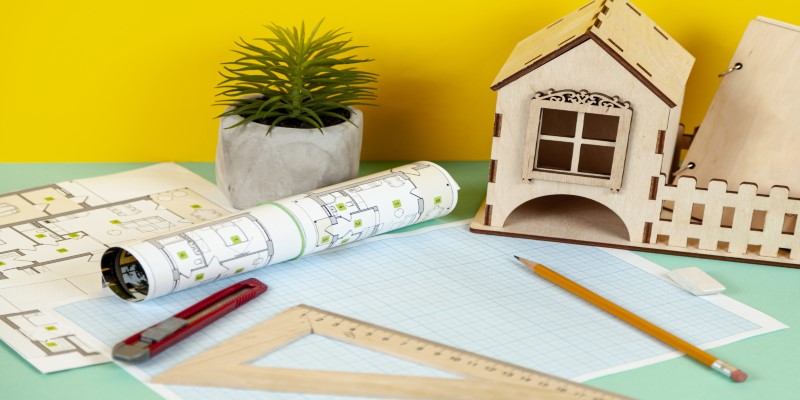Understanding Home Renovation Costs: A Complete Breakdown of What to Expect in 2025
Renovating a home is an exciting opportunity to enhance both its value and your living experience. However, understanding the costs involved is crucial to avoid financial stress. Home renovation costs can vary greatly depending on the scope of the project, material choices, and the complexity of the work. Being aware of these factors ahead of time allows you to make more informed decisions and manage your renovation budget effectively.
This article will explain the different elements that cost money when renovating, from planning to materials, labor, and unexpected expenses. We'll also offer some pointers on estimating costs and even ways to save without compromising on quality. By the end of this, you will feel more confident in your decisions to take on the financial part of your home renovation.
Planning Your Renovation Budget
One of the first steps in any home renovation is establishing a realistic budget. Home renovation costs can really add up, and that is especially true if you are not prepared for some of these expenses. Allocate about 10-20% of the total project cost for unexpected expenses. At this point in your renovation process, you could be tempted to focus entirely on your ideal result, but you must remain grounded in financial reality.
Plan your renovation budget based on how much work you will have to do. Do you have cosmetic renovations in mind—perhaps painting or new fixtures? Or do you need major overhauls or structural changes, such as a kitchen or adding new rooms? This depends entirely on how much work will be needed and, therefore, impacts the budget. One of the significant factors in calculating the renovation costs is labor; labor costs tend to take a significant share of your total expenditure.
Once you’ve established a rough budget, break it down into categories based on the type of work involved. This will give you a clearer picture of where your money will go and help you avoid overspending in any particular area. Don’t forget to factor in costs for permits and inspections, which are often required for certain types of renovations, such as electrical or plumbing work.
Factors That Affect Home Renovation Costs
Several factors can influence the total cost of your home renovation project. Understanding these factors will help you manage your expectations and make smart decisions.
Scope of the Renovation

The size and complexity of your renovation are among the most important factors determining costs. Simple cosmetic updates, like changing light fixtures or installing new flooring, will generally cost less than major renovations, such as expanding a room or completely gutting and rebuilding a kitchen or bathroom. Keep in mind that larger projects often come with higher labor and material costs, as well as more time required to complete the work.
Materials
The quality of materials you choose for your renovation project can have a significant impact on costs. For example, hardwood flooring can be much more expensive than laminate, and granite countertops will cost more than laminate or butcher block options. While it's tempting to opt for high-end finishes, keep in mind that these choices can quickly drive up your total renovation costs. However, you can often find quality alternatives that won’t break the bank.
Labor Costs
Labor can account for a substantial portion of your home renovation costs. Depending on the complexity of the work, you might need to hire a general contractor, electricians, plumbers, and other specialists. Labor rates can vary based on your location, the skill level required, and the size of the project. It’s a good idea to get multiple quotes before hiring any contractors to ensure you're getting a fair price.
Location
The location of your home can also affect renovation costs. In cities or high-demand areas, labor and material costs tend to be higher due to increased demand. Additionally, local building codes, permits, and zoning laws can impact the type of work you can do and the cost of getting the necessary approvals. If you’re renovating in an area with a higher cost of living, expect to pay more for both materials and labor.
Hidden Costs of Home Renovations
While you may have accounted for the obvious expenses, a number of hidden costs can sneak up on you during a renovation project. These often overlooked expenses can derail your budget if you're not prepared for them.
Permit and Inspection Fees
Certain renovations, like structural changes or electrical upgrades, require permits and inspections, which come with additional costs. Research local requirements and factor these fees into your budget to avoid surprises. Proper planning ensures you're compliant with regulations, preventing unnecessary delays or penalties during the renovation process.
Unexpected Repairs
During renovations, hidden issues such as water damage, mold, or outdated wiring may surface, leading to unexpected repair costs. To account for these, budget an additional 10-20% for unforeseen expenses. This extra cushion will help cover repairs, particularly in older homes, and keep the project within financial limits.
Temporary Living Costs

If your renovation displaces you from your home, alternative accommodation expenses can quickly accumulate. Whether staying in a hotel or renting a temporary apartment, factor these costs into your budget. For larger projects, like a full kitchen remodel, you may also need to rent equipment or arrange meal services.
Design and Planning Fees
Hiring an architect or interior designer involves additional costs, but their expertise can be invaluable. They help optimize your plans, avoid costly mistakes, and identify cost-effective solutions. While their services come at a price, they can ultimately save you money and ensure a smoother, more efficient renovation.
Conclusion
Understanding home renovation costs is crucial to staying within budget while achieving your desired results. By planning, considering factors like scope, materials, and labor, and accounting for hidden expenses, you can avoid surprises. With careful budgeting and strategic choices, you can successfully manage the financial side of your project. Renovating your home is an investment, and with proper preparation, it can enhance both the value and enjoyment of your living space without breaking the bank.












